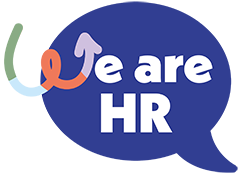Table Of Contents
Embarking on a career in human resources (HR) is a dynamic journey that promises not only personal growth but also the opportunity to shape the success of organisations and positively impact the lives of their employees. For those aspiring to thrive in this competitive field, a robust set of skills and qualifications is essential.
Key Qualifications for HR Managers
Employers highly value two primary qualifications when seeking HR managers in the UK.
CIPD Level 5 Associate Diploma in People Management
This diploma, equivalent to an undergraduate degree, provides a comprehensive overview of HR principles, practices, and methodologies. It equips aspiring HR professionals with the knowledge and skills necessary to adeptly manage people-related functions within organisations.
CIPD Level 7 Advanced Diploma in Strategic People Management
Regarded as the equivalent of a Master’s degree, this advanced diploma is tailored for experienced HR professionals with a proven track record of success. It delves deeper into strategic HR practices, empowering HR managers to develop and implement effective strategies aligned with organisational goals.
Beyond Qualifications: Essential Skills for HR Managers
While qualifications are a strong foundation, success in the HR field relies on a diverse set of essential skills, including:
- Communication and Interpersonal Skills: HR managers must communicate effectively with employees, managers, and stakeholders. Building rapport and fostering positive relationships with individuals from diverse backgrounds are crucial components of this skill set.
- Analytical and Problem-Solving Skills: Proficiency in data analysis and trend identification is vital for HR managers to make informed decisions. They must effectively tackle HR-related challenges and solve problems to ensure the smooth functioning of the organisation.
- Leadership and Decision-Making Skills: In a leadership role, HR managers need to motivate and inspire employees. Sound decision-making aligned with strategic organisational goals is a key aspect of effective HR management.
- Adaptability and Resilience: The HR landscape is ever-evolving, and HR managers must adapt to new trends and challenges. Being resilient in the face of setbacks is essential to maintaining effectiveness in their roles.
Strategies for Career Advancement
Beyond foundational qualifications and skills, aspiring HR managers should consider additional strategies for career advancement:
- Continuous Learning and Professional Development: The HR field is dynamic, and staying ahead requires a commitment to continuous learning. Attend workshops, webinars, and industry conferences to stay informed about the latest trends and best practices.
- Networking and Building Professional Relationships: Establishing a robust professional network is invaluable for career growth. Attend HR-related events, join professional associations, and connect with experienced HR professionals to gain insights and opportunities.
- Specialisation and Niche Expertise: Consider specialising in a specific area of HR, such as talent acquisition, employee relations, or HR analytics. Developing niche expertise can set you apart in the competitive job market.
Navigating Challenges in HR Management
- Conflict Resolution and Mediation Skills: HR managers often encounter workplace conflicts. Developing strong conflict resolution and mediation skills is crucial for maintaining a harmonious work environment.
- Embracing Diversity and Inclusion: In today’s globalised world, HR managers must promote diversity and inclusion. Understanding cultural nuances and implementing inclusive policies contribute to a positive workplace culture.
Pursuing Your HR Career Goals
For those passionate about HR, making a meaningful difference in the lives of employees and organisations requires an investment in both education and professional development. By obtaining the necessary qualifications and honing the essential skills, aspiring HR managers position themselves for success in this rewarding field.
Remember, the journey to becoming an HR manager is a continuous process of learning and growth. Staying abreast of the latest HR trends, attending industry events, and networking with professionals are avenues to enhance knowledge and expertise. Dedication and perseverance are key ingredients to achieving career goals and making a significant impact in the dynamic field of HR.
In conclusion, this comprehensive guide for aspiring HR managers emphasises that qualifications and skills are just the starting point. Continuous learning, coupled with a passion for HR, will pave the way for a successful and fulfilling career in this ever-evolving field. Explore additional strategies, navigate challenges, and stay committed to growth for a truly rewarding journey in HR management.


